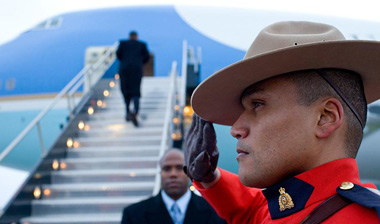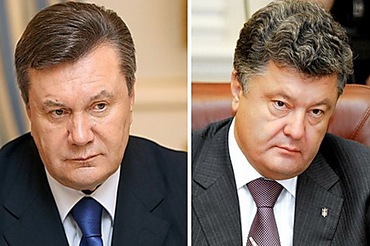Russian leaders generally consider the USSR’s dissolution to be one of the greatest geopolitical tragedies of the past century. While this defeat is traditionally calculated in terms of material losses – military, economic, territorial, or otherwise – what’s also important, and often missed, is how it largely dispatched the idea of communism as a credible political ideology. Russia, shorn of its imperial ambitions, found itself in a conundrum: how could it re-exert influence if it lacked a compelling worldview for other nations to buy into? Without the adhesive of global communism, what could bind Russia to her neighbours beyond vulgar convenience?
The answer presented itself in the early 2010s, strangely enough, when Western countries began incorporating LGBT rights under the larger umbrella of human rights. Human rights have always been integral to Western foreign policy. The West, to the extent that it’s an intelligible cultural bloc, has never been shy about its conception of human rights as universal values – something to export. While this moral advocacy has often been tainted by the realities of geopolitics, and criticized accordingly, the underlying rights have for the most part been uncontroversial. However, the assimilation of LGBT rights changed that, given ongoing controversy in many parts of the world on the legitimacy of said rights. Russia deftly exploited this new cultural friction. Western commitment to liberal values was reframed as a homosexual conspiracy – in Russian eyes: a testament to the corrupting powers of decadence, a perversion to be defended against. Putin used this narrative to craft a system of values oriented around religiosity and nationalism. It was a narrative that was self-consciously antithetical to Western secularism and post-national inclusivity.
The tactic worked. By tapping into and cultivating Russian homophobia, Putin positioned himself as the defender of “traditional values” and consolidated power under their legitimizing moral force. Russia passed anti-gay laws that banned “homosexual propaganda”, nurturing an environment in which anti-LGBT hate crimes continue to flourish. Anti-gay laws were closely associated with laws curtailing the operations of foreign NGOson Russian soil, thereby aligning homophobia with anti-Western nationalism. Putin’s reframing of himself as the defender of morality was a domestic success. It bolstered his popularity and also promised to recoup what was lost in the post-Soviet era: a system of values that, like communism, was distinct from Western liberalism and could be leveraged as a form of soft power. Like any such system, its use isn’t limited to domestic politics. Putin has been testing its power in a variety of ways, such as through sponsoring far-right European political groups. While Europe’s nationalist crisis isn’t entirely attributable to Russian interference, Putin’s championing of traditionalist nationalism isn’t trivial. While the focus has been on Russian interference in European politics, what is less understood is how Russia’s traditional value system has been exported to neighbouring Eurasian countries, and how, in a way, homophobia has become an ideological tool through which Putin has been trying to create an echo of the Soviet Union.
Kyrgyzstan has been the perfect laboratory for this. The country is the smallest and poorest of the Central Asian republics (or the “-stans” as they’re colloquially known). Its post-Soviet tolerance of progressive rights earned it a reputation as the Switzerland of Central Asia. It leaned heavily to the West for a time, even providing a major airbase to the United States’ War in Afghanistan. However, Kyrgyzstan’s proximity to Russia has always precluded real independence from Russian power. Its tolerant reputation was, in many ways, doomed to be an anomaly. The American airbase was closed in 2014. Around this time, the country began adopting Russia’s traditional values system. Suddenly, homosexuality became a critical public menace. Kyrgyzstan pushed for its own version of an anti-propaganda bill. As in Russia, the bill was heavily associated with the over-regulation of foreign NGOs. The bill was passed by parliament twice but failed to become law, allegedly owing to pressure from international organizations, particularly the UN Human Rights Council. Ironically, if rumours of foreign interference are true, then this intervention, while unambiguously a win for LGBT people in the region, also plays into the narrative that homosexuality is something foreign, further geopoliticizing LGBT rights. Therein lies a trade-off: attempts to protect sexual minorities from prosecution can, with sad irony, entrench their status as outsiders.
Though the anti-gay bill failed to become law, it nonetheless had a chilling effect on LGBT rights. It isn’t as though LGBT people were socially accepted before the bill, but they were, at least, somewhat tolerated and could exist on the margins of society. After the bill passed, homophobic attacks increased dramatically. Local LGBT groups became targets of organized violence. Gay clubs closed, and gay activists were assaulted at private events and had an office firebombed. Their assailants had a common refrain: one of reclaiming the nation; of protecting the national spirit from the corruption of modernity and, above all, foreign decadence. This cultural evolution, towards the active vilification and persecution of LGBT folks, mirrored Kyrgyzstan’s economic and political shift towards Russia. In 2015 Kyrgyzstan joined the Eurasian Economic Union (EEU), a Russian-led political and economic union of Eurasian states that, on the surface, is meant to act as a counterbalance to the EU, but in practice is a vessel for Russia’s imperial revivalism.
Kyrgyzstan’s pivot back to Russia has been underwhelming, though. Russian investments in local infrastructure shriveled in the face of budgetary constraints brought on by Western sanctions and depressed oil prices. Kyrgyzstan benefits from being a transit zone for Chinese commodities, but EEU membership has threatened that with new trade tariffs, which poses a risk to the country’s economy. Given all this, it’s fair to wonder whether Kyrgyzstan will realign itself yet again, either towards the EU or China. If the country looks towards the West, then to what degree will that be accompanied by cultural change? The persecution of LGBTQ+ folks in the country is only partially a result of Russian influence, and, as much as Russia has stoked local homophobia, these prejudices are a symptom of local culture. How much can Western policymakers advocate for change? Pushing too hard might create pushbackand accusations of cultural imperialism. Pushing too little might undermine the modern liberal conception of human rights.
Kyrgyzstan represents an interesting challenge. Whereas the 20thcentury was defined by the battle between capitalism and communism, recent years have shifted the conversation towards a battle of values that’s less associated with specific economic systems. The world liberal order, which for some just recently seemed like a historical inevitability, is now contested. How the West chooses to define and defend its system of values is becoming increasingly important. The expansion of these values to include LGBT rights was a major evolution in how we conceive liberal society, but it’s important to understand the less obvious implications and costs. For Western policymakers, it has meant more friction when reaching out to countries on the peripheries of their spheres of influence – whether that means Kyrgyzstan, or countries like Moldova, Ukraine, and Serbia. For Russia, it has been a convenient distraction that leverages prejudice to mask the poor return on Russian economic and political alliances. For LGBTQ+ people, it has represented an unexpected alliance between themselves and Western states, and an appreciation of the harsh reality that, if the powers of the state must be used to push for rights across the globe, it follows that the enemies of your allies will come to see you as an enemy as well.
Featured Image: Man holding a crowbar. via Pexels.com
Disclaimer: Any views or opinions expressed in articles are solely those of the authors and do not necessarily represent the views of the NATO Association of Canada.




